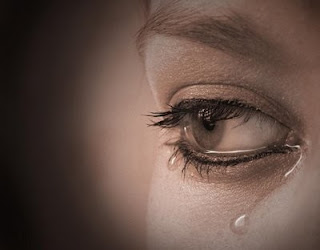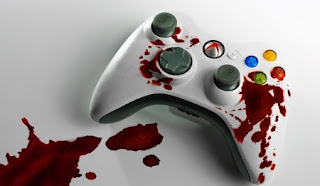Life: Far From The Twisted Reach Of Crazy Sorrow
Dealing with loss is oftentimes one of the most
difficult things to do. People may try to comfort and console you and
this can help but in the end the journey of grief is one that must be taken
alone.
I say this because no one can truly understand how
you are feeling about it even those who have gone through the stages of grief
before. It doesn’t help because each person grieves differently and every
loss is different because what was lost was unique to you.
True grieving takes time and there are no pre
established parameters for when it should end. It can be weeks, months or
even years before you are ready to accept the loss and move on with your own
life.
Mostly the symptoms of grief are generalized in
stages. One must progress through these stages naturally. Grief
counselors and therapists can help but there are no quick fixes.
At first you may experience a numbness and lack of
energy or motivation. Psychopharmacotherapeutic medication to handle
depression may help alleviate the symptoms of grief but it won’t treat the
underlying cause.
It is also possible that such medications can
actually hinder the grieving process and should therefore be avoided without
consulting a proper therapist first. No quick fixes.
STAGE ONE is DENIAL. You refuse to accept the
change. Some shrug it off as a joke, others insist it’s a mistake.
But somewhere deep inside you know the truth. It tries to claw its way
outside of you but you resist. You’re frightened of it. Scared that
if you allow it to come out than it would be true and there would be no turning
back.
STAGE TWO is ANGER. You rage against
everything and everyone trying to find someone to blame. You want
justice, vengeance. You just want to hit something to make the pain go
away. But nothing you do helps. The world turns, day turns to
night, night to day and the circle repeats itself.
STAGE THREE is BARGAINING. Deals with
deities. Some try to offer up their own lives in exchange for
another’s. Some may promise to abstain from more lewd behavior or offer
their own services. In the end nothing helps.
STAGE FOUR is DEPRESSION. You fall into a
slump. Your energy is gone, your motivation is nonexistent. You’ll
ruminate over life and death. The fairness (or lack of) of
everything. You experience guilt feelings. Feeling that there might
have been something you could have done.
STAGE FIVE is the final stage and it is
ACCEPTANCE. You feel you can move on finally with your life. You
can’t change the past and that’s okay. You’ll always have some residual
emotions of the previous stages but they are no longer crippling. You can
find joy in life again.
All in all dealing with loss isn’t quite as cut and
dry as that. It may seem more like a ship in a storm with many ups and
down. But if you can manage to hang in long enough then clear skies will
await you.
You may even find that going through this experience
has enriched your life and the lives of those around you. Dealing with
loss is never easy to cope with. It takes time and patience. A good
support system is also quite crucial. While the journey of grief is
ultimately yours alone to travel it helps to know that there are warm hands
that will help pick you up if you fall.
You must also remember that whatever you experience
is normal. Trying to suppress your feelings or putting them aside while
you delve into work is common but it won’t work forever. No one can tell
you how you should feel (that includes you). Your journey is unique to
you.
Further on in life you may find certain events will
cause a minor relapse of symptoms. Holidays and special events are such
occasions and it can help to plan for them ahead of time.
There are of course going to be good days and bad
days but if you feel that you absolutely cannot get over it naturally it might
be time to see therapist.
There is also a chance that due to biological and/or
social stressors that clinical depression can set in when you are emotionally
vulnerable. It can be difficult to distinguish between the two since they
share many of the same symptoms but as a basic guideline beware excessive
rumination of the following:
1. Feeling like life isn’t worth
living anymore. Having thoughts of suicide is a biggie and I would
suggest immediately contacting a therapist for help.
2. Wishing you had died with your
love one.
3. Blaming yourself for the loss or
for failing to prevent it. This is a part of guilt and therefore also a
stage of grief.
4. Feeling numb and/or disconnected
from others for longer than a few weeks.
5. Having difficulty trusting
others since your loss. Sometimes after a major event one suffers from a
sense of anxiety or stress. Fearing to get close to others might also be
your mind trying to protect itself from future pain of loss. This is also
categorized as Post Traumatic Stress Disorder (PTSD) and can be debilitating if
left untreated.
6. Are unable to perform your
normal daily activities.
7. Slow speech, reactions and body
movements is also one of the biggies.
Remember that just like a boat on a stormy
ocean. You will have good days and bad days. Ups and Downs.
With clinical depression the pain is constant.
If you feel one of the symptoms above in excess please see a licensed therapist
as soon as you can.
Be aware and stay safe.



Comments
Post a Comment